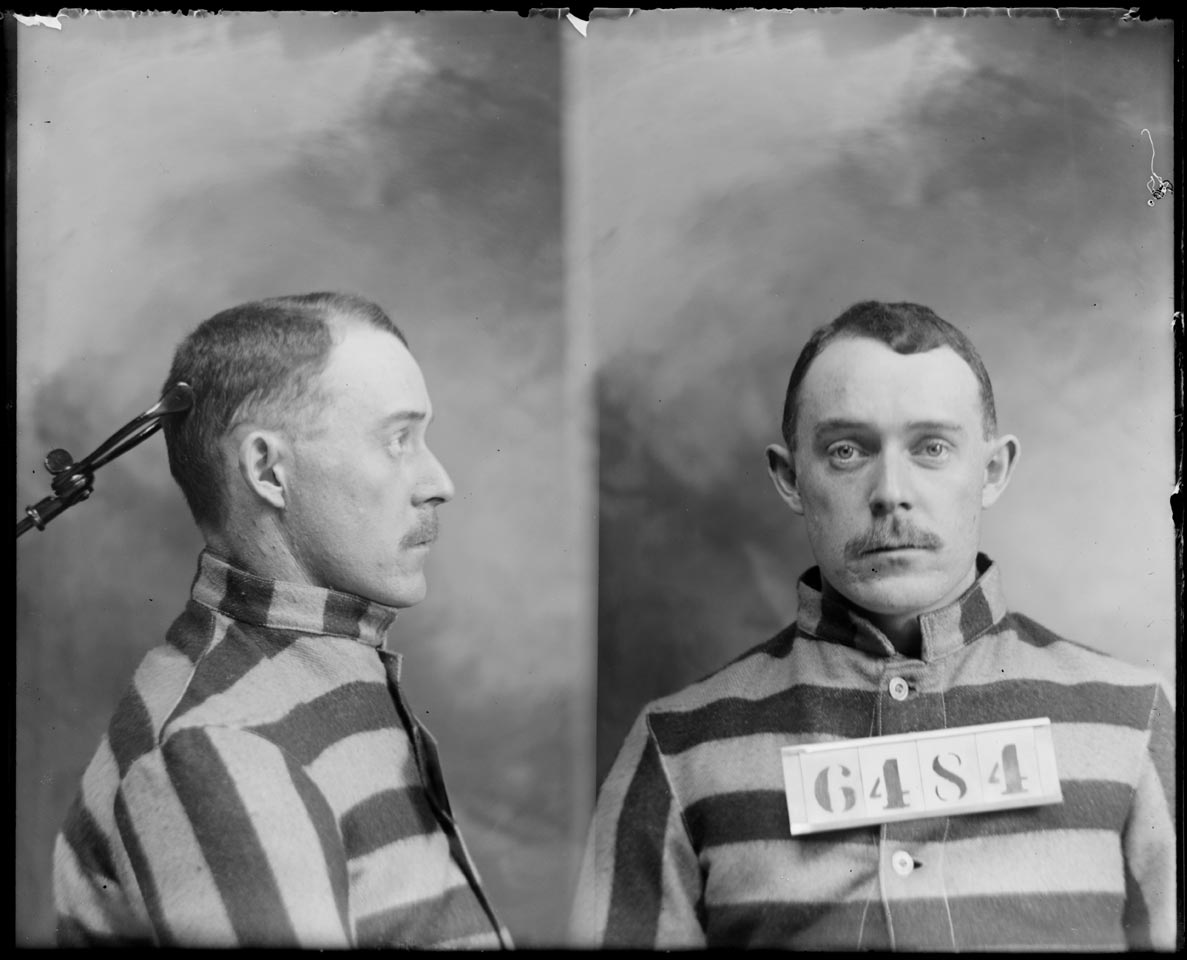This is the latest entry in a series of posts highlighting inmate photographs in the records of the Virginia Penitentiary. Will Liddle, the subject of this week’s post, served two nearly back-to-back terms, escaped for 20 minutes and was paroled in 1913.
On 4 April 1906, 24-year-old Will Liddle entered the Virginia Penitentiary to serve his one-year sentence for writing a bad check in Tazewell County. He was discharged on 15 February 1907. His freedom was short lived. Liddle returned to the Penitentiary on 21 September 1907 to begin serving a three-year term for stealing a mule. He also was given an extra five years for his second conviction.
Liddle’s good behavior quickly earned him “trusty” status which provided him with extra privileges. In the spring of 1908, Liddle’s trusted status allowed him to assist some carpenters working on the outside of the Penitentiary and the opportunity to escape. On 12 June 1908, Liddle, under the guise of going to the tool box, used a crowbar to break into the carpenter’s storage room. He put on a carpenter’s suit over his prison clothes and walked away from the prison. The guards quickly noticed his absence and sounded the alarm. After a 20 minute search Liddle was recaptured four blocks away. Those 20 minutes of “freedom” added an extra year to his sentence for attempted escape.
After Liddle’s escape attempt, he became a model prisoner and parole eligible. An 1898 Act of the General Assembly (amended several times) granted the Virginia Penitentiary Board of Directors power to parole prisoners if they met certain conditions. To be eligible the inmate must have served half his term, have not broken any prison rules for the two years preceding the date of one-half his term and the prisoner must have assurance of employment upon his discharge. Liddle met this criteria and was paroled on Christmas Eve 1913. Two years later the Virginia Attorney General issued an opinion stating that any legislation limiting the power of the governor to grant clemency was unconstitutional. This ended parole in Virginia until the creation of the Virginia Parole Board in 1942.
In two weeks: Mary Morst
-Roger Christman, Senior State Records Archivist














